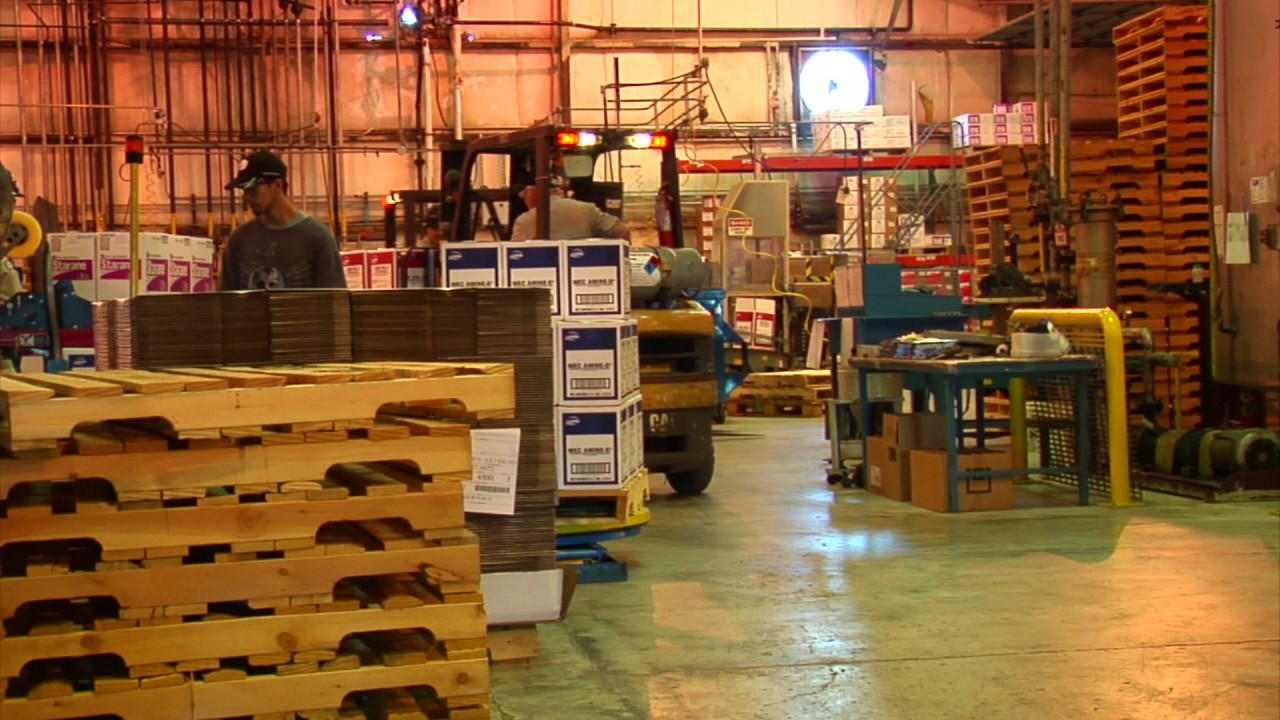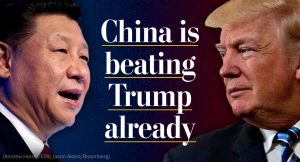President Trump signed an executive order on Monday ending the United States’ participation in the Trans-Pacific Partnership, a sweeping trade pact negotiated with eleven other nations. It was neither ratified by American lawmakers nor expected to pass a vote in Congress. But Trump chose to kill it anyway with an executive action, underscoring how different he is from his Republican predecessors — and some of the party’s current leaders — who embraced free trade and preached the dogma of open markets.
He also handed China its clearest opening yet to tilt the geopolitical balance in Asia in its favor.
Trump’s opposition to the TPP is one of his few consistent political positions. Throughout the campaign, he issued loud calls in defense of American workers and against the perils of globalization. The pact became politically toxic for both parties last year, with Democratic candidate Hillary Clinton turning against the TPP (she had initially supported it) and her leftist challenger Bernie Sanders joining Trump in framing the TPP as the project of secretive elites ready to stiff the American common man.
Trump spent Monday morning with executives of leading American manufacturing companies, discussing plans to give incentives to American corporations to stay at home and tax those that build factories elsewhere and then ship goods back. Whatever comes of these discussions, Trump seems to be sticking to his protectionist promises. Critics, though, argue that the economic and technological realities of our age mean that the bulk of lost American jobs, particularly in manufacturing, are never going to return.
“Economists have warned that many of Trump’s proposals — including suggestions that he would impose blanket double-digit tariffs on goods from Mexico and China — could backfire on the American economy by causing prices to rise or igniting a trade war,” wrote The Post’s Ylan Q. Mui. “And business groups such as the U.S. Chamber of Commerce had lobbied extensively for passage of the TPP, touting the deal as an engine of job growth and an important check on China’s growing ambitions.”

Ships sit under construction in a ship-building yard in Dalian, China, on Tuesday, Jan. 17. (Qilai Shen/Bloomberg)
Those supporting the TPP backed the pact for political reasons as well as economic ones. It emerged as the cornerstone of former President Barack Obama’s strategy to reassert American influence in Asia and balance against a rising China. The pact reduced tariffs, but also involved provisions that would compel countries to comply with tough international standards on labor and intellectual property rights. Longstanding U.S. allies in the Asia-Pacific, including Japan and Australia, were particularly enthusiastic supporters of the agreement.
“We can’t let countries like China write the rules of the global economy,” Obama said last year. “We should write those rules.”
A retreat from the TPP now gives Beijing, which has been negotiating its own trade blocs, a chance to fill a void. Since Trump’s election, the Philippines, Singapore and Malaysia have shifted toward China’s proposed Regional Comprehensive Economic Partnership, which would also reduce tariffs — without many of the standards put in place by Obama’s plan — and redirect Asian trade China’s way. Other nations in the region are likely to follow suit.
“We don’t have the choice America has. It’s big enough that they can make a living selling things to themselves,” said New Zealand Prime Minister Bill English on Monday. “We have to trade.”
A host of foreign policy luminaries in Washington, including this former U.S. ambassador below, panned Trump’s decision to gift China the upper hand:
By withdrawing from TPP today, Trump — “the dealmaker ” — just handed China a giant victory. For free.
“Trump has single-handedly given away an enormous source of leverage over China,” Edward Alden, of the Council on Foreign Relations, told CNN. “The first rule of negotiating is don’t give away something for nothing, and he’s done that right off the bat.” His boss, Richard Haass, echoed the sentiment:
TPP withdrawal will slow US eco growth, cost American jobs, & weaken US standing in Asia/world. China could well be principal beneficiary
But Trump doesn’t care about the establishment’s outrage. He doesn’t care about the United States’ historic role as a guarantor of stability and prosperity for a large swath of Asia. And the White House looks happy to risk escalation with China in a number of strategic hotspots, including over disputed islands in the South China Sea.
The uncertainty posed by the new administration allowed Chinese President Xi Jinping to play the grown-up at the World Economic Forum in Switzerland last week, where he gave a well-received address championing globalization and scolded those with protectionist delusions. The Chinese can now “pitch themselves as the driver of trade liberalization,” Eric Altbach, a former U.S. trade official, told Bloomberg.
Trump’s critics on the left say his populism is a sham aimed at securing plum deals for corporate allies while doing little to boost workers’ rights at home.
It’d be funny if it wasn’t so absurd: Trump, a billionaire, surrounded at his inauguration by billionaires, says he’s anti-establishment.
If Trump is seriously opposed to outsourcing, he can lead by shutting down his own sweatshops and paying workers in the US a living wage.




 By
By 




